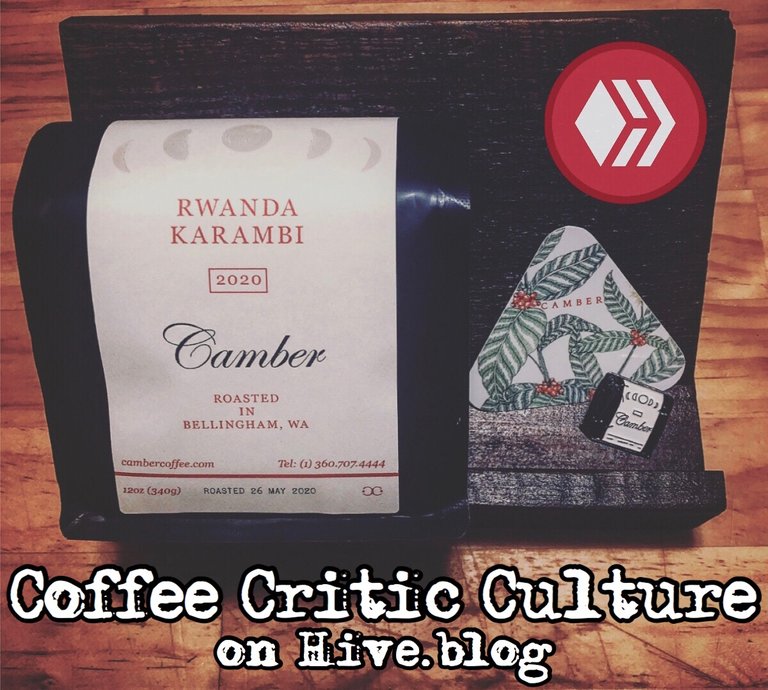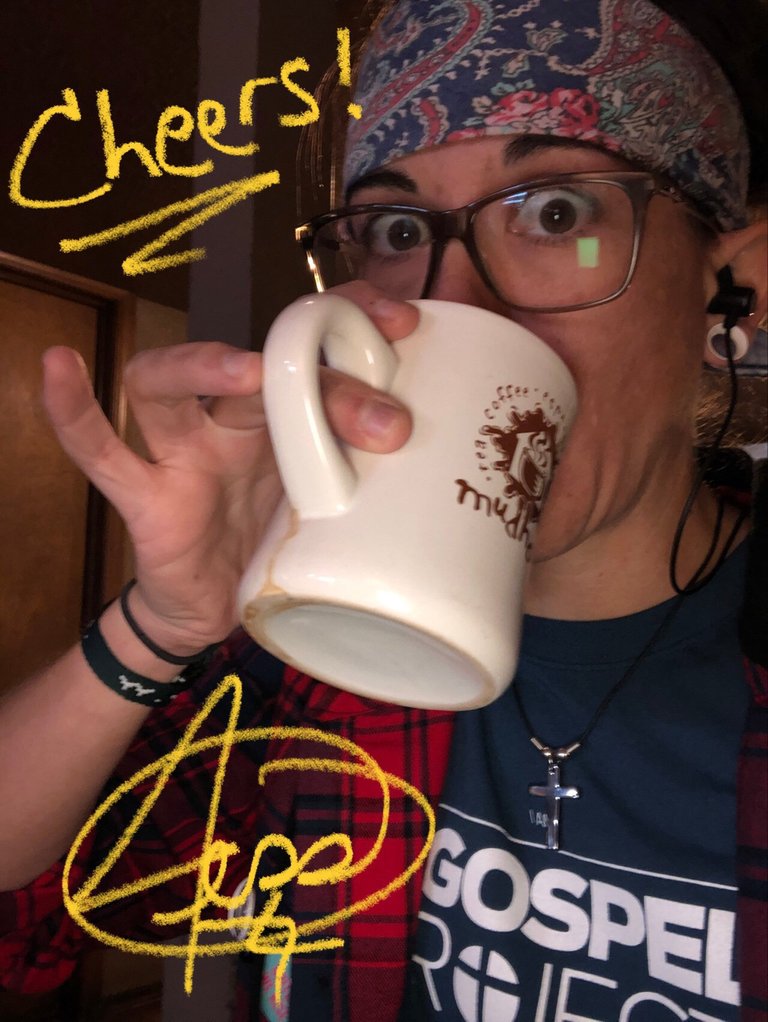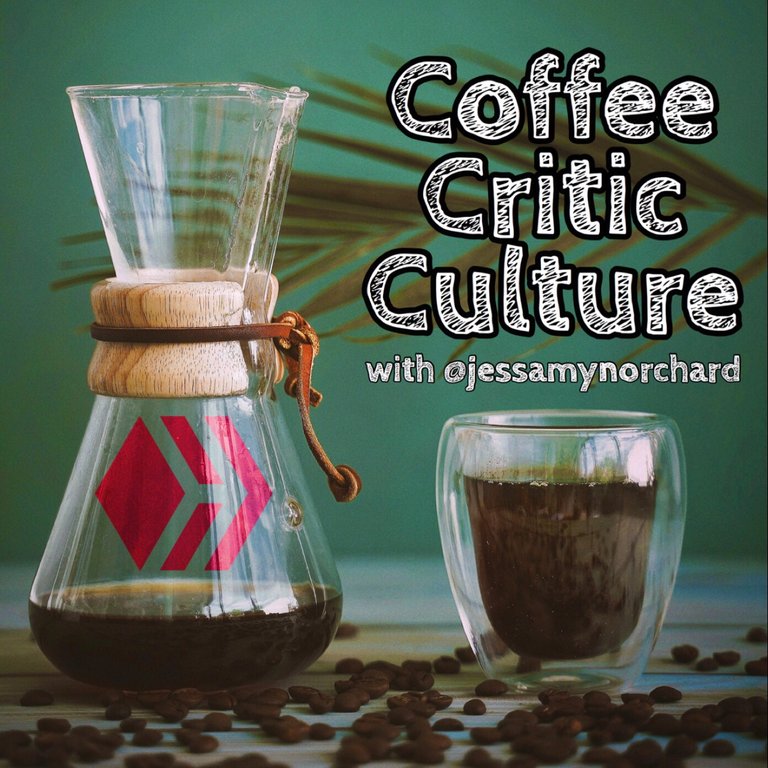
Camber Coffee out of Bellingham, Washington, has been producing micro-roasted batches of quality coffee for a few years, and turning heads with its roasts from jump street. The coffees they’re turning out have been featured in countless articles from sites such as Sprudge, Thrillist, Food & Wine, as well as being served in noteworthy restaurants, including those with James Beard honors. Camber is synonymous with quality.
In my quest to try coffees from every place that produces coffee, trying a coffee from Rwanda has been much anticipated, and this coffee definitely delivered to its expectation. The green coffee and the roast both present themselves of the highest quality in this cup.

Rwanda, a landlocked country in East Africa, has had its share of turmoil over the last number of years, and its coffee industry has also been through a journey, as well. Coffee was first introduced to the region in the 1930s by Belgian colonials, but the coffee, while grown in great quantities from this time, was not of the highest quality. This has changed greatly, however, in part due to efforts to rebuild the Rwandan economy by the UN after the civil war and subsequent Rwandan genocide of the 1990s. Farmers, coffee producers, and retail purveyors are working closely together to create ever-better cups of the highest and increasing quality.
Along with that growing quality, Rwandan coffee is also growing in popularity among noted Western roasters, and most reputable third wave coffee roasters offer a selection of coffee from at least one of its five primary growing regions.
95% of all the coffee grown in Rwanda is of the Bourbon varietal, is harvested between March and July, and is grown on high-elevation farms anywhere between 1,200 and 2,000 meters above sea level (MASL).

Review Time!
Camber’s Rwanda Karambi comes from close to the shores of Lake Kivu in Rwanda, in the southwest corner of the country, grown at 1900 MASL. The Karambi Washing Station processes coffees from around 400 small-scale farmers in that region, whose crops usually consist of just a few hundred plants per farm. It’s a single-origin community effort coffee that truly represents the heart of the region from where it originates.
This coffee’s bag notes “clove, raw honey, and anise,” and I wasn’t really super sure how I’d feel about that flavor combination when I first picked up the bag—but after spending some time with it, I couldn’t be more pleased with how this comes out in the cup. I’ve enjoyed this washed-process coffee in filter and pour-over, and while it makes a great filter coffee, I think it truly shines in a pour-over—as it brings out many of the more-subtle lighter notes of this coffee that can get lost in the mix of a drip preparation.
For the tasting, I prepared a 1:17 pour-over, which follows the same guidelines I’ve utilized in the past. I like this method for a tasting cup, as it’s pretty standard and it also provides a solid scale from which I can determine various subtleties in the cup.
The nose of this coffee is so complex and wonderful. I noted fresh bread, nougat, and nutmeg. It has a delightful light bread quality, combined with a light sweetness and a light spiciness. That bread quality comes into the flavor, with a transition from bread to a wheat note combined with raw honey. The raw honey amber-sweetness is so delightful in this cup. I cannot stress that enough.
That raw honey taste transitions to a maple-syrup aftertaste, and the bread flavors continue developing through the cup to a light toast taste in the aftertaste, as well. Toast and syrup? Yes, please.
The mouthfeel of the coffee is so balanced—smooth and clean, with a medium-round body and a sweet and ever-so light-tart acidity.
This is truly one of the most complex coffees I’ve ever tried, and is most definitely the most complex coffee I’ve ever reviewed. The subtle flavors that present themselves in one way, develop to another through the experience of aroma, taste, and aftertaste in a way I’ve not previously experienced in a coffee. Such an experience.
This coffee scored an 87 in my coffee journal, which ties it for 3rd overall among all the coffees therein. It received a 10/10 in the categories of Acidity, Mouthfeel, and Balance in terms of my preferences. It tied with Verve’s Burundi Kamira, and is only surpassed by Verve’s Kenya Gakuyuini (which holds a CCC rating of 90), and Cirque’s Weirdo Blend 3.1 (which holds a CCC rating of 91). This coffee is truly in great company in my literal book..

References/Further Reading:
Rwanda Coffee: Everything You Need To Know, Homegrounds.co
Karambi Washing Station, Coffee Shrub.
Rwandan Genocide, Wikipedia.org.
Operation Turquoise, Wikipedia.org.

Thanks for checking out this installment of Coffee Critic Culture on Hive. Look out for our next coffee review, and in our next vlog I’ll be demonstrating a couple of my favorite Aeropress methods.


I’m @jessamynorchard, and I’m a second-wave trained barista with years of experience selecting, preparing, drinking, and appreciating coffee. I live in Springfield, Missouri, where I am a full-time looping musician, podcaster, and blogger, and I love sharing my passions with folks who are eager to increase their own appreciation of the intricacies of coffee.


lol read with interest and I don't even like coffee. Nicely composed. I reckon they (the people/government of Rwanda) could still improve on the industry based on what I read here. I'll do my own independent research to find out just how much the coffee industry currently occupies. nice read
Thanks for checking it out and for your kind words! I have to stop myself sometimes from sharing too much, and just try to keep it about the coffee, and not a research paper about other things surrounding it. Lol but again, thank you so much for reading this review and commenting; it’s a huge compliment that it held your attention even though you don’t like coffee. Cheers!
Nah I think the research aspect is good. For instance not all of us are coffee lovers, so that's at least something different to attract a wider range of followers
I really appreciate this feedback! It’s encouraging to me, and I’ll keep this in mind next time. I like to know that the material is being well-received, and that it’s interesting. I started the blog to just have an additional space to wax on my coffee experiences, but I like knowing that folks are actually reading and enjoying what I’ve got going on here. Much appreciated!!
As an Italian coffee lover, I really appreciate this post and in general your account. You earned a follower and I'll be reading your posts with interest :)
Just, unluckily, it's hard to find the same varieties of coffee here in Italy!
@cfrassineti Thank you for reading the review, and for following me here on Hive. :) I love connecting with other coffee lovers, and hope to talk more with you in the future!
I do wish more coffee roasters offered international shipping, and generally that international shipping was less of a dice roll, in general. In the upcoming potential “Fourth Wave” of coffee, I hope to see more international availability for coffee. For example, James Hoffmann is one of my favorite coffee connoisseurs/educators, and I wish his Square Mile coffee was more accessible to the US. His isn’t the only one I wish was easier to get ahold of, as there are great things being done among European roasters and I want to get my hands on all of it—but the budget just doesn’t allow for it!!
Anyway, thanks again for the comment and the follow! I look forward to talking coffee with you more! Feel free to drop a line if there’s ever anything you’d like me to cover in the blog. Cheers, and happy coffee drinking!